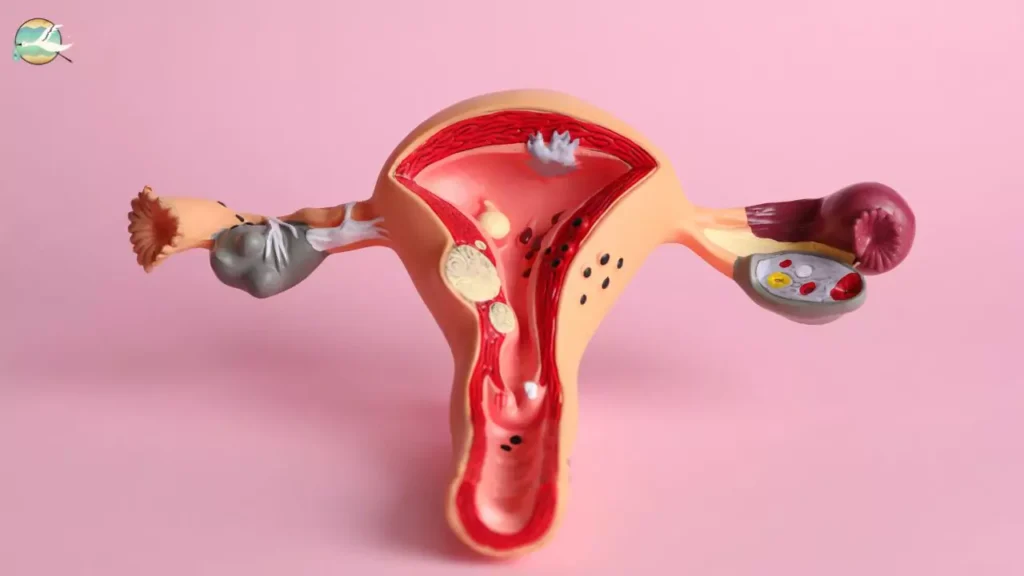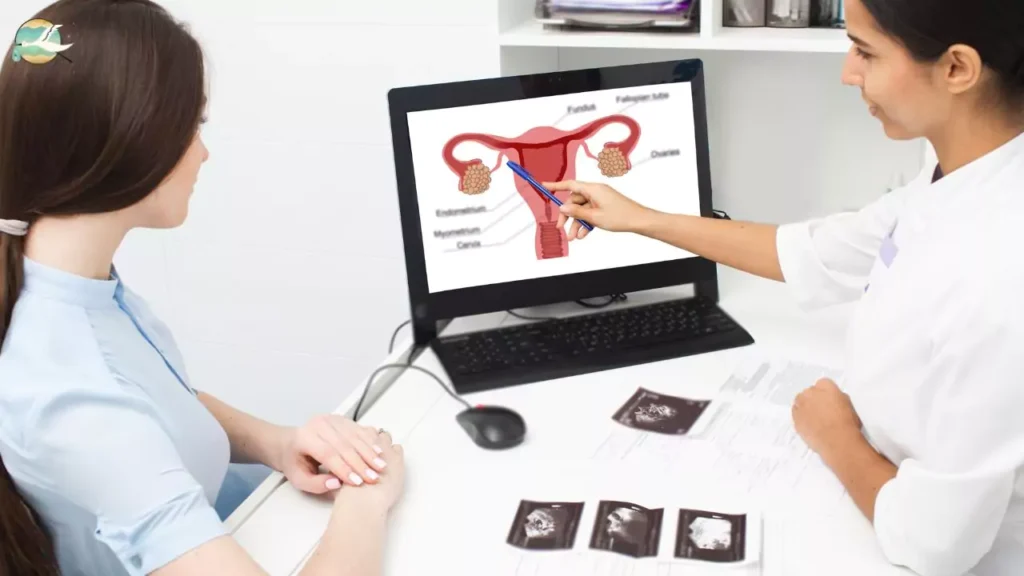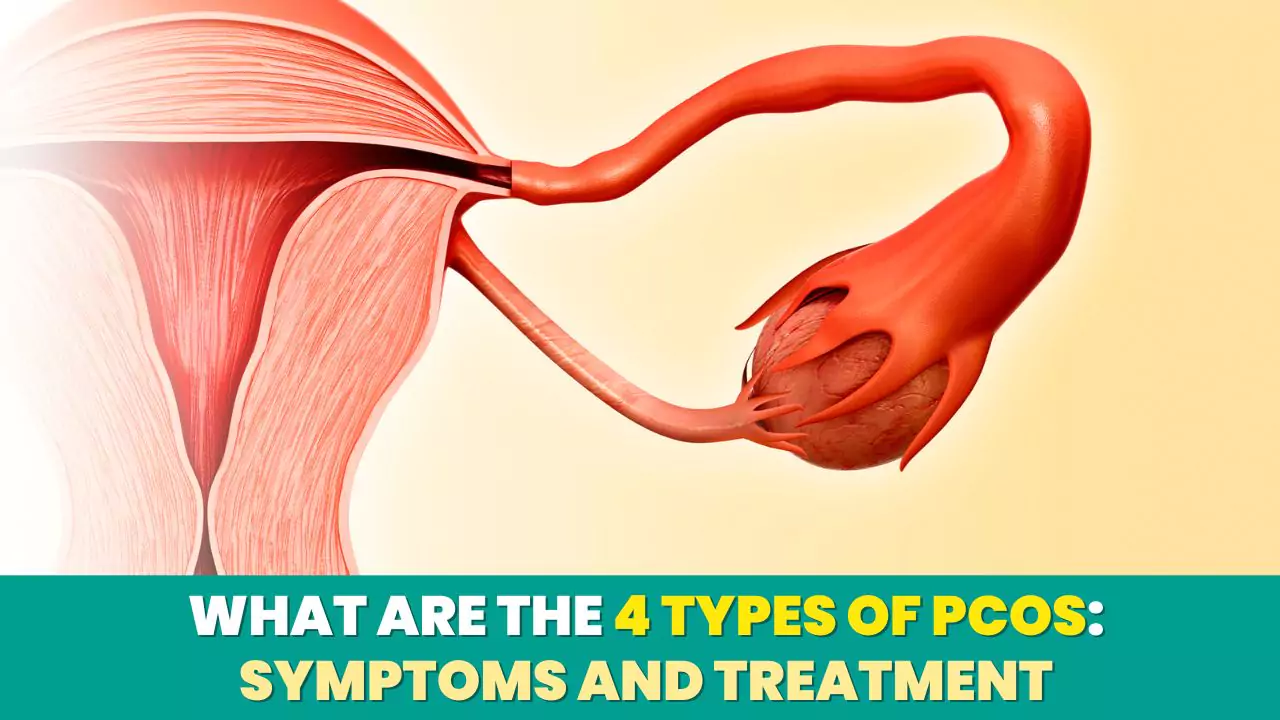Discover what are the 4 types of PCOS. Uncover their symptoms, causes, and treatment options to better understand this common hormonal disorder.
Table of Contents
PCOS is a common hormonal condition that affects a large number of people, particularly women of childbearing age. PCOS is a complex disorder with numerous manifestations, thus it is important to comprehend its intricacies. In this post, we will look at the four basic forms of PCOS and provide in-depth information on each. We will go over their distinguishing features, symptoms, causes, and treatment choices. Let us go out on a voyage to debunk PCOS.

What are the 4 types of PCOS?
Insulin-resistant PCOS: This is the most common type of PCOS, affecting around 70% of those who have the condition. Insulin resistance occurs when the body’s cells become less receptive to the hormone insulin. Because insulin is in charge of controlling blood sugar levels, insulin resistance can result in high blood sugar levels. High blood sugar levels might cause the ovaries to create more androgens (male hormones), resulting in PCOS symptoms.
Inflammatory PCOS: Chronic inflammation is the root cause of this type of PCOS. Numerous things, including a poor diet, stress, and particular medical problems, can contribute to inflammation. Higher blood levels of inflammatory markers characterize inflammatory PCOS.
Adrenal PCOS: The overproduction of androgens by the adrenal glands is what causes this type of PCOS. The androgen-producing hormones are produced by the adrenal glands, which are found above the kidneys. Higher androgen levels in the blood, with normal insulin levels, are signs of adrenal PCOS.
Post-pill PCOS: Some women may get this type of PCOS if they stop using birth control medications. Some women can experience PCOS symptoms because of the abrupt decrease in hormone levels.
It’s important to remember that these are only four of the most prevalent PCOS subtypes. There are further varieties of PCOS, and some people may combine two or more.
What are the symptoms of PCOS?

Some people may not experience any PCOS symptoms at all, and symptoms might vary from person to person. However, a few of the most widespread signs of PCOS are as follows:
- Irregular periods or no periods at all: One of the most typical signs of PCOS is this. Less than nine monthly cycles are possible for women with PCOS, as well as extremely irregular periods.
- Excess hair growth (hirsutism): Overgrowth of hair on the face, chest, back, and belly might be a result of PCOS.
- Acne or oily skin: PCOS may also result in acne or greasy skin.
- Weight gain: Obese or overweight women are more likely to have PCOS.
- Thinning hair on the head: PCOS can result in hair loss on the head, particularly in the front and crown.
- Darkening of the skin on the neck, armpits, and groin: This condition is referred to as acanthosis nigricans and is a typical PCOS sign.
- Infertility: Having PCOS might make it challenging to conceive.
What are the treatment options for PCOS?
Depending on the types of PCOS you have and how severe your symptoms are, there are many treatment choices. But a few of the most popular remedies are as follows:

Lifestyle changes:
The first line of treatment for PCOS is frequent lifestyle modifications such as weight loss, diet changes, and exercise. Even a slight weight loss can assist in alleviating your symptoms and lower your chances of long-term consequences. Plenty of fruits, vegetables, and whole grains are part of a balanced PCOS diet, but it’s also vital to restrict processed meals, sugary drinks, and bad fats. For those with PCOS, regular exercise is particularly crucial. On most days of the week, try to get in at least 30 minutes of moderate activity.
Medications:
Several medicines, including the following, can be used to treat PCOS.
- Birth control pills: Your risk of endometrial cancer can be decreased and your periods can be more regular using birth control pills.
- Metformin: Metformin is a medication used to treat type 2 diabetes, but it can also be used to treat PCOS. Metformin helps to increase insulin sensitivity and can help to lessen PCOS symptoms like acne, weight gain, and excessive hair growth.
- Clomiphene: Ovulation can be induced with the use of the drug clomiphene. Infertility in women with PCOS is frequently treated with it as a first-line option.
- Gonadotropins: In order to promote ovulation, gonadotropins are hormones. Infertility in women with PCOS is frequently treated with them as a backup option.
- Spironolactone: Spironolactone is a medication that can be used to lower levels of androgen and treat symptoms like acne, excessive hair growth, and head hair loss.
Surgical Methods for PCOS:
Laparoscopic ovarian drilling (LOD) is the primary surgical procedure for PCOS. In a minimally invasive technique called LOD, some of the ovarian tissue that produces too much androgen is destroyed by heating it up or using a laser.
The standard operating procedure for LOD is general anesthesia. Through one of the incisions, the surgeon will insert a laparoscope, a little tube with a camera attached. The surgeon will then view the ovaries with the laparoscope to determine which tissues need to be removed.
The surgeon will then burn away the ovarian tissue with a laser or heat. There are several methods for doing this, including:
- Electrocautery: To kill the tissue, an electric current will be used.
- Laser ablation: In order to kill the tissue, a laser is used.
- Radiofrequency ablation: In order to destroy the tissue, radio waves are used.
The surgeon will take out the laparoscope and close the incisions after the ovarian tissue has been removed.
LOD is a relatively straightforward treatment with low risks. However, there are some possible side effects, including bleeding, infection, and harm to the ovaries or other surrounding organs.
LOD is frequently successful in treating PCOS symptoms such as irregular periods, acne, and excessive hair growth. It can also aid PCOS-afflicted women in increasing their fertility.
FAQs: Types of PCOS
what types of medications can help a woman with PCOS get pregnant?
Your particular situation and medical history will figure out which drug works best for you. The following list includes some of the most popular drugs for treating infertility caused by PCOS:
Clomiphene citrate
Letrozole
Gonadotropins
Metformin
what types of fruit can I eat with PCOS?
Some good fruits for people with PCOS include:
Berries, Citrus fruits, Apples, Pears, Peaches, Plums, Nectarines, Cantaloupe, Honeydew melon, Watermelon, Avocados.
How do you know if you have PCOS?
You should visit a doctor to determine if you have PCOS. Your medical background, current symptoms, and potential results of a physical exam will be discussed with you. Additionally, to examine your ovaries, they could need blood tests and an ultrasound.
what are the first signs of PCOS?
Although each person will experience PCOS differently, some of the most typical early symptoms are as follows:
Irregular periods or no periods at all
Excess hair growth
Acne or oily skin
Weight gain
Darkening of the skin around the neck, armpits, and groin
Does PCOS cause infertility?
Yes, PCOS can result in infertility. In fact, it is the most common cause of female infertility.





[…] What are the 4 types of PCOS: Symptoms and Treatment […]
[…] What are the 4 types of PCOS: Symptoms and Treatment […]